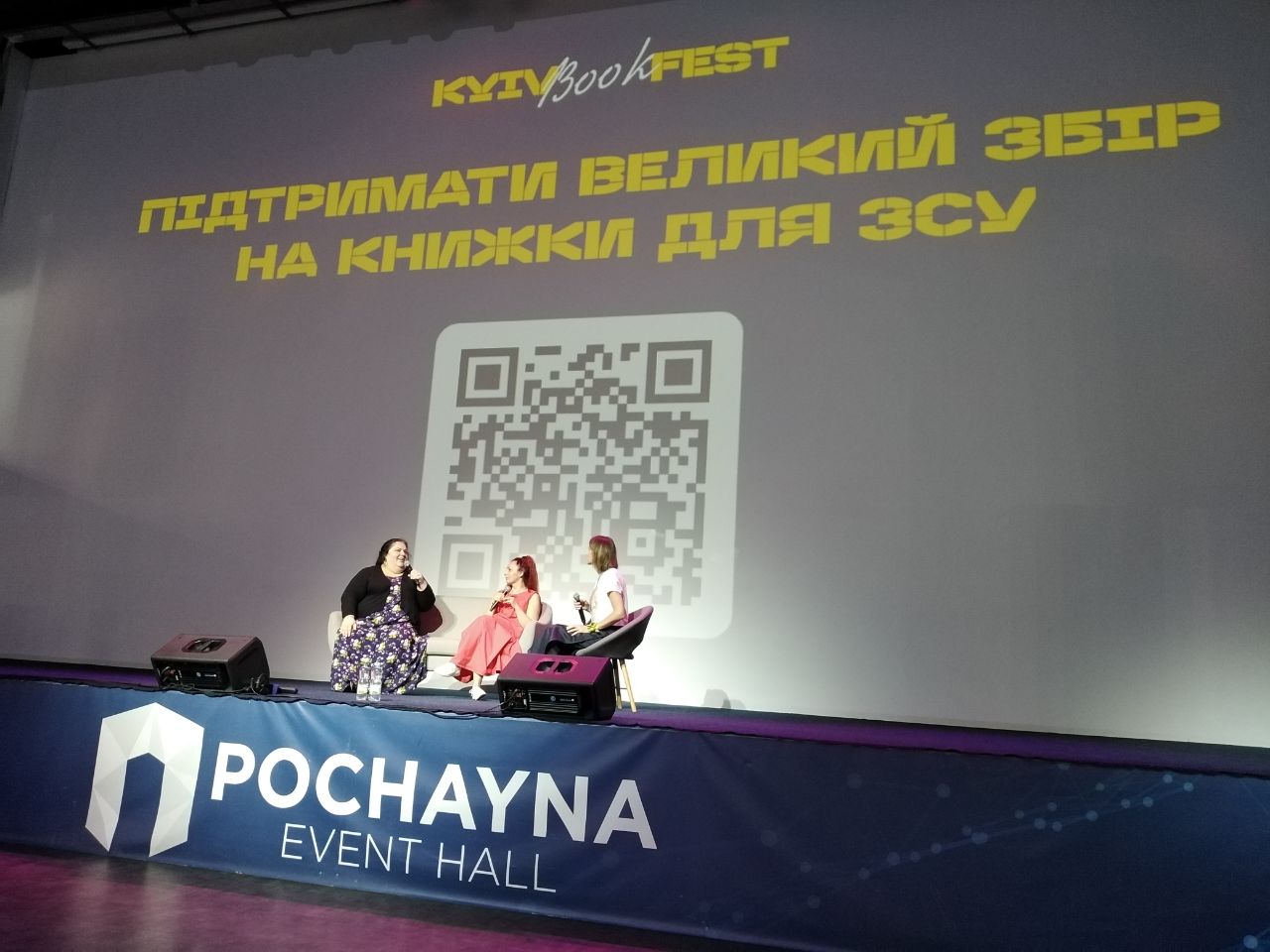There was a discussion “Artistic writing and social trauma. Therapy or relapse. Do complex topics need an artistic solution?”
As part of the Kyivbookfest book festival, the discussion “Artistic writing and social trauma. Therapy or relapse. Do complex topics need an artistic solution?” was held today. Attempts to write a book or make a film on the topic of the modern Russian-Ukrainian war have been repeatedly accompanied by scandals over the past year. Is society ready to see the modern tragedy in literary form, and is it not too late to write about the Holodomor today? The Acting Director General, Lesia Hasydzhak, and writer Tania Piankova shared their thoughts. The event was moderated by the representative of the Nash Format publishing house, Liudmyla Fit.
“It is always timely to talk about the Holodomor. Because this is a story that we learned about much later after it had happened, because the truth had been hidden for many decades, – says Lesia Hasydzhak. — For at least thirty years, the history of the Holodomor has been known, researched, and understood through various artistic means. And now is just the time when we have access to an array of documents, evidence of oral history. Therefore, we can look objectively and impartially at that period. Secondly, the events of the past have been re-actualized today by the war, as a result of which we have encountered many crimes with signs of genocide, which are taking place in the occupied territories. We see that the enemy has not invented anything new: the method of destruction is the same. Therefore, now is the time to speak more, more clearly and harshly about the history of the Holodomor, including in the language of literature.”
This topic needs honest, unadorned coverage in fiction. Tania Piankova, the author of a new impressive novel about the Holodomor, “The Age of Red Ants”, is convinced of this. Her work may shock someone, or hurt someone, but it is necessary for the full recovery of society.
“We have to present this drama as it was otherwise we will never get out. It’s like in medicine. If we treat the symptoms, we will never recover, we have to get to the cause. My way of writing is to show all these abscesses, maybe it looks ugly, scary, many people say that they are not ready to look at these scabs… But otherwise we will never heal them. That’s why this book appeared just like that,” the writer noted. Indeed, the bitter truth will not allow infatuation with Stalinism (and Putinism), will not let crimes and criminals be whitewashed under any circumstances, and will inevitably lead to the condemnation of evil that has never been punished.
At the same time, opinions on when it is appropriate to write fiction about the modern war were divided among female speakers. Lesia Hasydzhak, as a museologist and historian, believes that now is the time to document, collect testimonies, and create documentaries, which will eventually allow us to see a complete picture of events, about which we still do not know everything.
At the same time, Tania Piankova is convinced that literature is about emotions, and it is crucial to record what we feel when experiencing certain events. Because over time, details are erased in memory and some events we already see in a completely different light than when they happened. Therefore, it is still worth trying to write about the war, but one should be very careful when using both facts and fiction.
